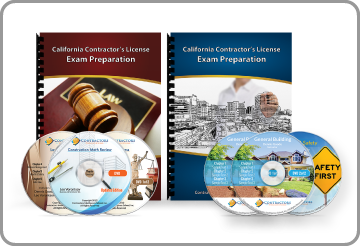Becoming a general building contractor is a big step in the construction field. This role involves serious duties and legal responsibility. A contractor license is more than a simple paper. It is a sign of your skill, honesty, and trust. Most states in the U.S. demand that general contractors hold a valid license before taking on certain jobs. Whether you want to work on homes, buildings, or commercial sites, getting licensed is the right way to move forward. This article explains what is needed to apply for a license, how to prepare, and what you must show to qualify. With the right knowledge and planning, you can become a licensed contractor and start a trusted career.
Understanding the General Contractor Role
General contractors handle all key parts of a construction project. They make sure each task is done the right way. This includes working with suppliers, talking to clients, and managing laborers. They don’t always do the hard labor themselves, but they do direct every phase. These roles need more than just skills in construction. You also need strong planning, time control, and safety knowledge. Contractors must follow state codes, understand permits, and deal with issues like weather delays or material shortages. This is why states require a license, to ensure only trained and proven people lead these complex jobs.

State Rules and Licensing Boards
Contractor licenses are not the same in every state. Some states have their own boards, while others leave licensing to cities or counties. Each board sets rules based on project size, cost, or job type. For instance, California requires a license for any job over $500. In Florida, you need a state-level license to work on large jobs. Rules can also include checks like criminal history or identity proof. It’s key to visit your state board’s official site to learn what’s needed. They offer forms, fee lists, and guides to help you apply. Reading these rules early helps avoid mistakes in your application.
Work Experience and Education Needed
The most common rule across states is that you must show past experience. Usually, four years of hands-on work is needed in the trade you want to license. You may also need experience in leading or managing jobs. Some states allow you to mix formal education with work hours. For example, if you have a diploma or took technical classes, they may count as part of your required years. However, you still need to prove field experience. When applying, you may need to submit documents like:
- Employer letters stating your duties
- Tax returns to prove income from past jobs
- Project lists showing work types and dates
- References from licensed pros you worked under
- Proof of your role as a foreman or lead worker
These details help the board trust that you’ve done real jobs, not just short tasks or unpaid work

Required Exams and Study Materials
Most contractor licenses require you to pass one or more exams. These tests check your skill level and your knowledge of laws. One part of the test is on trade knowledge. This means building codes, tools, safety, and jobsite skills. The other part is business-focused. It covers contracts, taxes, insurance, and worker laws. Some states let you take the test online, while others need in-person exams. To get ready, you can use many helpful tools like:
- State-issued guides and sample questions
- Online video courses with test drills
- In-person prep classes with expert tips
- Study apps and flashcards
- Practice exams to test your timing
Studying the right way helps you pass on the first try. It saves time and lets you move quickly to the next step.
Insurance, Bonding, and Fees
After your exam and experience check, you’ll need to show that you are insured. Insurance protects you and your clients if something goes wrong. Most states ask for general liability insurance. Some also want proof of workers’ compensation if you have staff. On top of this, many states require you to get bonded. A surety bond is a type of legal promise that you will follow the law. It helps protect clients from fraud or unfinished work. You’ll also pay some fees. These may include:
- License application fee
- Exam registration fee
- Fingerprint or background check fee
- Bond fee, which can vary by state
- Insurance premiums to keep your policy active
These costs are part of running a legal business. They show clients that you are real and reliable.

Submitting Your Application
When all your documents, test results, and insurance details are ready, you can send in your application. Some states let you do this online. Others need paper forms sent by mail. You’ll need to fill in all sections carefully. This includes your name, address, work background, test scores, and legal details. Be honest and accurate. If the board finds errors or missing parts, your license can be delayed or denied. Once sent, the board reviews everything. If approved, they’ll mail or email your license. Some states also give you a contractor number. Keep a copy of your license in your records and post it at your job sites if required.
Conclusion
Getting a general building contractor license is an important step for anyone serious about a career in construction. It proves that you have the needed skills, knowledge, and experience to manage large-scale projects. While the process may seem lengthy, it prepares you to handle legal, safety, and business responsibilities with confidence. Each step, like submitting documents, passing exams, and meeting insurance requirements, adds to your professional value. Once licensed, you can legally work on major construction jobs, attract better clients, and grow your business. A license also builds trust, which is key in an industry where reliability matters most. It helps you stay ahead of unlicensed competitors and gives you more freedom to set fair prices for your work. In short, earning your contractor license opens new doors and builds a strong foundation for long-term growth, success, and respect in the field of general building and construction.

























